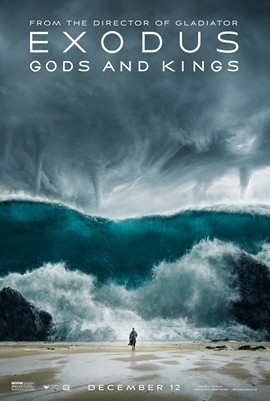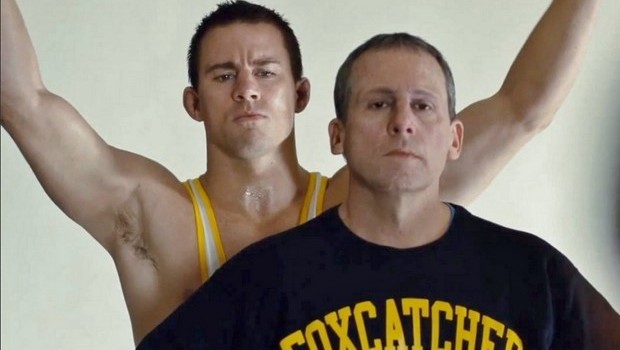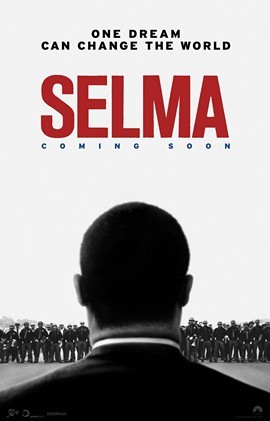
Exodus: Gods and Kings (Scott/14)
“Exodus: Gods and Kings” (2014), directed by Ridley Scott is a return to the oft-told Biblical story, most famously filmed by Cecil B. DeMille in “The Ten Commandments” (1956), of Moses liberating the Israelites. However, Scott, currently cinema’s foremost director of historical epics with “Gladiator” (2000), “Kingdom of Heaven” (2005) and “Robin Hood” (2010), attempts to bring a fresh approach to a sporadically revived genre that has lain largely dormant for decades.
“Exodus” though, only partially succeeds. Despite running for two and a half hours, the film still feels abbreviated and characters unnecessarily abandoned (Scott has claimed his preferred cut would another ninety minutes). Many of the fine supporting cast, including Aaron Paul, Ben Kingsley and Sigourney Weaver, have little development and merely deliver exposition of the picture’s plot, serving more as ciphers than real characters. Even the adventurous decision of having God portrayed as a petulant child by Issac Andrews backfires, lacking the requisite gravitas. The film is left feeling oddly diminutive despite the massed thousands of slaves or Egyptian soldiers, brought to life by some uneven computer generated imagery. Worse still, the script (by Steven Zaillian amongst others) seems to evade Moses himself; Bale is convincing but he’s asked to create nuances that just aren’t there. Joel Edgerton, as Ramesses, and John Turturro, playing Seti, fare better, embodying the complex court politics of the pharaohs’ rule.
However, all is not lost. If the cast are left to fend for themselves by the script, then at least we can regale in Scott’s beautiful craft. Early scenes, of Ramesses extracting venom from snakes or Mosses visiting a slave encampment run by Ben Mendelsohn, show his grasp of the power of images, the positioning of the camera, the instinctive knowledge of when to cut, revealing Scott’s visual complexity. Cinematographer Dariusz Wolski uses digital photography to convey the harshness of the desert light, the unblinking intensity of the North African sun (the film was shot on location in Morocco as well as in Almería, Spain), that admirably shows the dirt and grit of the ancient world. Scott’s movies always look extraordinary and this is no exception: the film’s stand-out sequence is the ten plagues overwhelming the Egyptian capital of Memphis, the Nile turning red and the waves of all-consuming locusts and flies, a visual coup that belongs to a better thought-out film.
“Exodus: Gods and Kings” is undoubtedly a flawed film, belonging to the lower tier’s of Scott’s filmography, and yet in its pictorial richness, it becomes strangely fascinating despite the neglect of a host fine thespians and the erratic quality of its special effects. An intriguing misfire then, that becomes more interesting than more tonally consistent studio pictures. As ever with Scott, maybe the Director’s Cut will be worth waiting for.




